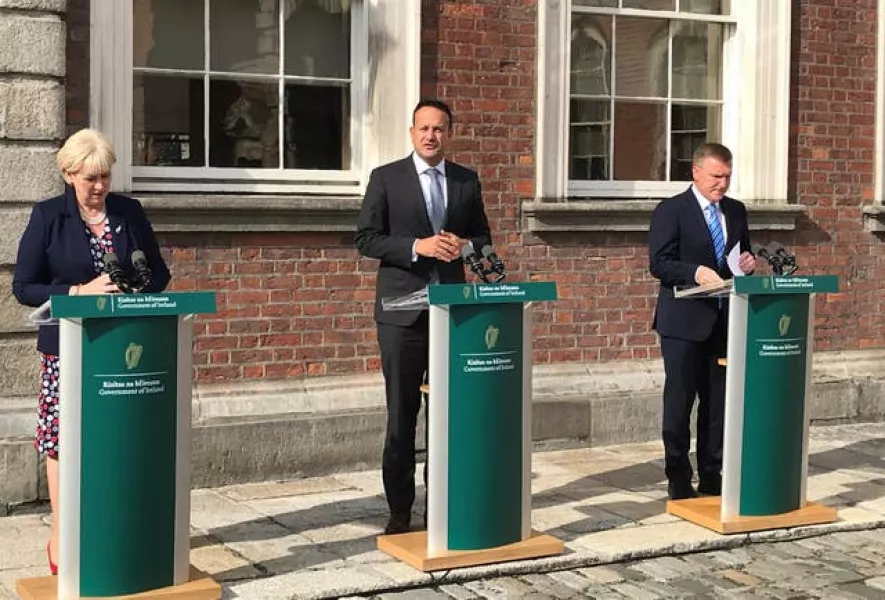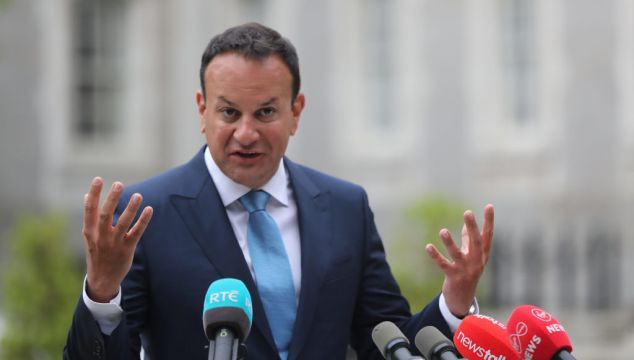Tánaiste Leo Varadkar has announced a new scheme to ensure workers taking redundancy are not left “out of pocket” for time spent on pandemic support schemes.
On Tuesday, the Cabinet signed off on plans to restore workers’ rights to request redundancy and put measures in place to ensure they are not short-changed for time spent on the pandemic unemployment payment (PUP).
The right of employees to request redundancy if their hours are significantly cut was suspended during the pandemic, amid fears that a flood of requests would cripple businesses.
As the country moves out of the pandemic, and support schemes are wound down, the Government has moved to restore that right.

Tánaiste and Enterprise Minister Mr Varadkar said: “We suspended that right during the pandemic, because we were concerned that there would be a flood of redundancy claims, and that the cost of that might bring down employers.
“Also, we wanted people to stay engaged with their employer, because they were laid off as a consequence of the pandemic, through no fault of their own, not because the business was failing, but because of exceptional circumstances.
“We wanted to keep people connected to their employer during that period. But things have changed.
“We’re in what I hope is the final phase of this pandemic. As of September 30th, that right is now being restored to workers.
“So they can say to their employer, take me back on full time, take me back on or if you don’t, make me redundant and pay me the redundancy lump sum that I’m entitled to.”
Tánaiste @LeoVaradkar and Ministers @HHumphreysFG and @mmcgrathtd have announced a special payment for employees made redundant after the pandemic.
This will provide up to €1860 for workers made redundant who have lost reckonable service.
Read more: https://t.co/fhSZerC0H2 pic.twitter.com/ZCyRHzs31F— Department of Enterprise, Trade and Employment (@DeptEnterprise) September 21, 2021
Advertisement
The right to request redundancy applies to workers who have been in their position for at least two years, but under current laws, they would not be entitled to anything for time spent on the PUP or Jobseekers Benefit.
The Government is to step in, covering the statutory redundancy costs for that period, with a maximum payment of up to €1,860 euros per worker.
The scheme is to run until 2024 and will be paid for through the Social Insurance Fund.
“That means that workers are not left out of pocket, they get the full redundancy lump sum that they should get rightfully” Mr Varadkar said.
“But it also means that we’re not imposing an additional financial burden on employers, who may be experiencing financial difficulty, evidenced by the fact that they have to lay off staff at all.”
He added: “No interest will be applied initially and they’ll have a long period before they need to pay that back.”
The cost of the scheme has been estimated at €30-€130 million.
Officials at the Department of Enterprise have estimated that between 24,000 and 56,000 redundancies could emerge in the coming months.
Mr Varadkar said it was difficult to give an accurate figure as it was “impossible” to project how many redundancies there will be in the coming months.
“We have estimates based on it being 24,000 people, 40,000 people, 56,000 people. It’s just impossible to know how many redundancies will crystallise in the next few months” he said.
The Tánaiste added that his officials have told him they believe the final figure will be at the “lower end” of the scale.
PUP 'limbo'
He said there are 100,000 people still on the PUP, many of whom are “caught in limbo”.
“They might like to take up new employment elsewhere. But if they do, they would forfeit their redundancy payment,” he said.
“You can understand why they would not do that. This will change that calculation for them, and they’ll be able to say to their employer, take me back on or essentially make me redundant and release me.”
Mr Varadkar said the issue will arise again when other pandemic support schemes are wound down.

“We just don’t know how many of those jobs will be viable without the wage subsidy scheme” he said.
“But these were only ever temporary measures. They have to be phased out at some point and that’s what we’re doing.
“The basic principle is to make sure that workers are not out of pocket, and that we don’t impose any new financial burden on businesses.”







